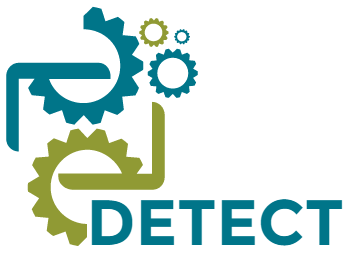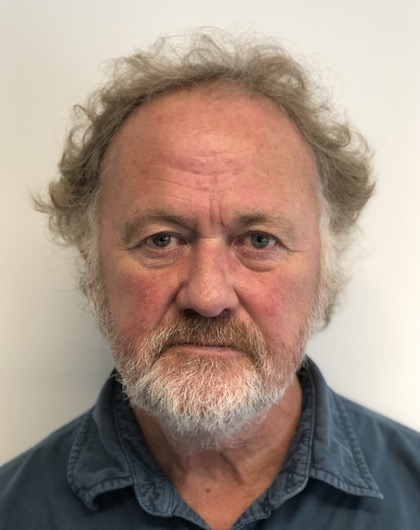DETECT 2022
mo deling, v erification and testing of d ependable cri tical systems

In conjunction with 11th International Conference on Model and Data Engineering
21-24 Nov 2022, Cairo, Egypt
mo deling, v erification and testing of d ependable cri tical systems

In conjunction with 11th International Conference on Model and Data Engineering
21-24 Nov 2022, Cairo, Egypt
The International Workshop DETECT 2022 will be held in conjunction with 11th International Conference on Model and Data Engineering (MEDI), Cairo, Egypt (21-24 Nov 2022). DETECT 2022 will provide to the scientific community a dedicated forum for discussing and representing experiences, state-of-the-art reports and work in-progress related to system architecture challenges and model-based system engineering practices on design, verification and testing of dependable systems.
All accepted papers will be published in Communications in Computer and Information Science (CCIS) by Springer.
All papers presented in DETECT 2022 will be invited to submit extended versions for a special issue.
(discussions are underway with several international journals).
Critical systems are increasingly used in a variety of domains and in several forms (e.g., cyber physical systems, embedded systems, real-time systems). Such systems are becoming more and more complex as they are networked and composed of heterogeneous subsystems. Integration of components, contributed by respective domain experts, is one of the key challenges in engineering system architectures. Deploying cyber-physical and internet-of-things systems in disparate critical domains requires engineers to ensure the safety and dependability of those systems. The DETECT workshop focuses on all aspects of model-based system engineering of critical systems. DETECT aims to create a common community from academia and industry to share best practices, tools and methodologies, taking into account the functional and non-functional aspects (scheduling, performance, security, safety, etc.) of such systems.

Requirements analysis methods rely on the expertise and experience of human intervention to make critical judgements. While human judgement is essential to an analysis method, it is also important to ensure a degree of mathematical formality so that we reason about safety and security at early stages of analysis and design, rather than detect problems later. In this talk, I will describe the use of abstraction and refinement of formal models in an hierarchical analysis approach that aims to justify the design and flow-down of derived critical requirements arising from safety hazards and security vulnerabilities identified at the system level. The formal model helps to identify hazards and vulnerabilities arising from the design and how they relate to the safety accidents/security losses being considered at this level. We then re-apply the same process to each component of the design in a hierarchical manner. In doing so, we decompose critical requirements down to components, transforming them from abstract system level requirements, towards concrete solutions that we can implement correctly so that the hazards/vulnerabilities are eliminated.
Dr Colin Snook is a Senior Research Fellow in the cyber-physical systems group at the University of Southampton, UK. He was involved in the development of the Rodin formal modelling tools, especially UML-B which is a UML-like diagrammatic front-end for the Event-B formal modelling language. He has spent the past 20 years collaborating with industry in the Aerospace and Railway domains to facilitate industrial use of formal methods. This has included consultancy on modelling and verification of systems as well as developing formal modelling tools and training various industrial partners in their use. Before gaining his PhD in computer science at Southampton in 2001, he worked as a software engineer on safety-critical aircraft engine controls.
Critical systems are emerging research fields where the safety is dependent upon the precise operations of the system. These systems are more and more used in different domains like avionics, railway, healthcare, under several forms (e.g., Cyber Physical Systems, Real-Time Embedded Systems, etc.) and become more complex since they can be networked and composed of heterogeneous subsystems.
Workshop topics include, but not limited to:
DETECT 2022 invites papers in three categories. Submission guidelines for each category of paper are as follows:
Each submitted paper must be original, unpublished and not submitted elsewhere. Contributions must be written in English and be prepared using Springer’s Lecture Notes in Computer Science (LNCS) format. Submitted papers will be carefully evaluated by at least three reviewers.
Submissions must be in PDF format and should be made using the DETECT 2022 Easychair site: https://easychair.org/my/conference?conf=detect2022
At least one author of each accepted paper must attend the conference to present the work.For any question, please contact the pc chairs directly.
Accepted workshop papers will be published by Springer in "Communications in Computer and Information Science".
Accepted and presented papers in DETECT 2022 will be invited for a special issue. (discussions are underway with several international journals). Invited papers must be extended in at least 30% of new material for the journal submission.
Akram Idani, Rim Djedidi and German Vega
Asieh Salehi Fathabadi, Dana Dghaym, Thai Son Hoang, Michael Butler and Colin Snook
Soura Boulaares, Salma Sassi and Sami Faiz
Charaf Eddine Dridi, Nabil Hameurlain and Faiza Belala